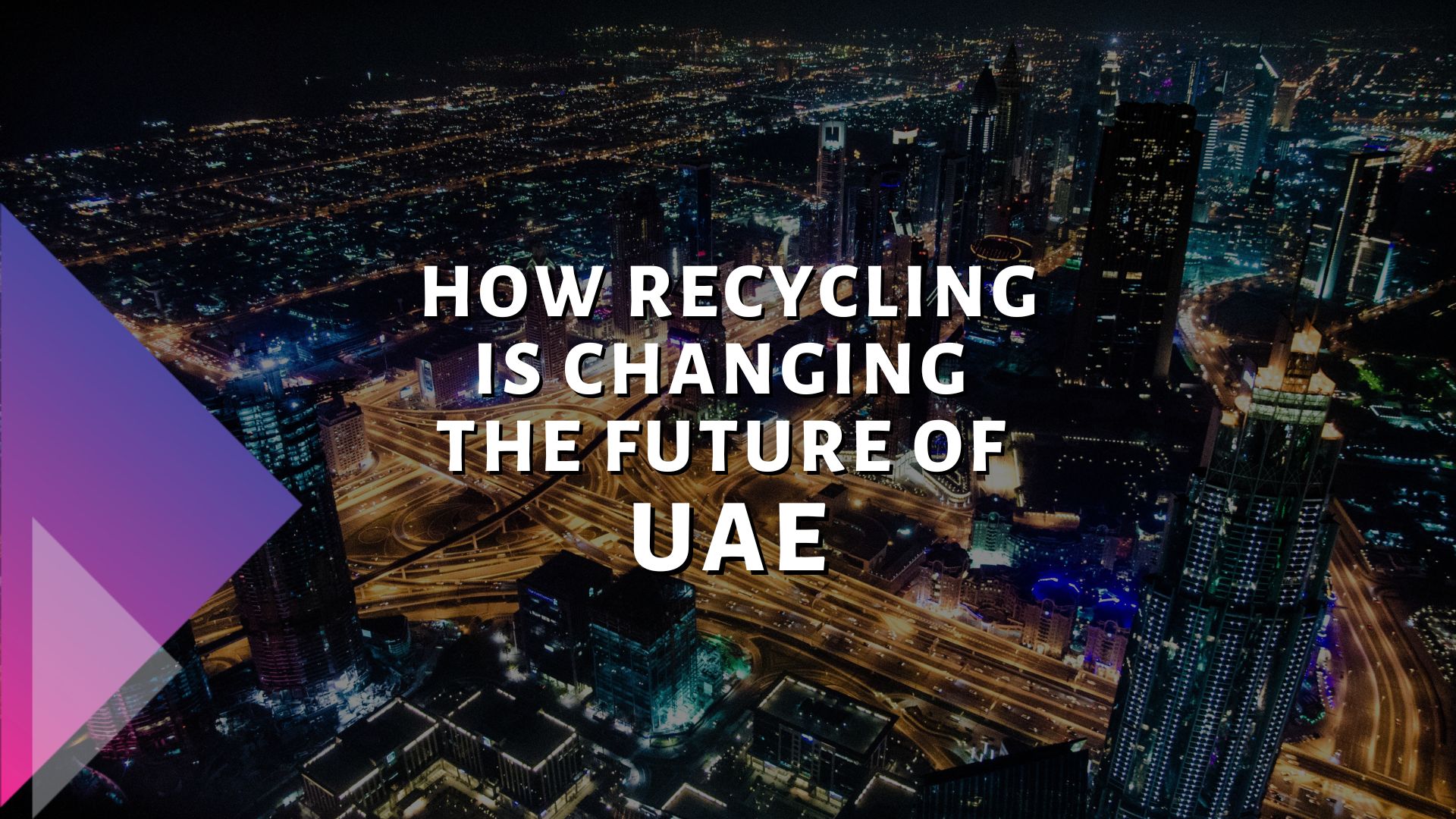
The UAE has always been a progressive, contemporary nation. The nation’s environmental goal of diverting more than 75% of garbage from landfills since 2021 reflects its commitment to a sustainable future and its interest in recycling.
A quiet revolution occurred in Dubai in 2022. It is more likely to revolutionize the emirate’s perspective on sustainability and set us decisively on the path to a greener and cleaner future.
Recycling – Changing the Future of UAE for Better
One of the habits that come to mind when thinking about sustainable living is recycling. Because of the greenhouse gas emissions and the harm, our waste does to the environment, many of us are becoming increasingly concerned about climate change. Due to the universal availability of recycling bins in various locations, recycling has become a part of the daily lives of many people to do our part.
Recycling aids in lowering carbon emissions, yet it isn’t the pinnacle of sustainable change. Understanding how these two significant problems are impacting one another is crucial since both waste and climate change are global challenges that are only becoming worse. Recycling helps the climate issue in two ways: by reducing the use of raw materials and the quantity of garbage that ends up in landfills.
According to Project Drawdown research, recycling can cut carbon dioxide (CO2) emissions between 2020 and 2050 by 5.5 to 6.02 gigatons.
Recycling and waste are fundamentally related since recycling transforms trash into new goods. As we use recycled materials, this relationship helps to promote global environmental initiatives. That is a substantial reduction from a simple lifestyle shift, making recycling an effective, yet simple, transition to help reduce carbon emissions and help minimize the climate catastrophe.
In fact, there has been a lot of discussion in recent years, especially in the wake of the Dubai Expo 2022, about the urgent need to develop more circular economies and sustainable lifestyles.
Saving the Planet by Recycling
Pollution from garbage is one of the biggest issues facing the earth right now. Our ability to control the rubbish we create has been harder as the population continues to increase. With the growing waste issue, pollution (of the land, water, or air) has gotten worse over time, endangering the health of millions of people throughout the world.
According to a World Bank estimate, if no action is taken, worldwide garbage would rise by 70% by 2050. The aggregate garbage production among high-income nations is greater than one-third (34%) of the global total. Particularly troublesome are plastics. When improperly gathered, they pollute ecosystems and streams for hundreds of years.
Reducing energy use and resource consumption has positive implications for sustainable activities. We can comprehend recycling’s value in some situations. When compared to the energy required by manufacturers to process bauxite ore, recycled aluminum cans utilize 95% less energy. Manufacturers may save 20 and 80 percent of the energy needed to produce recycled paper goods when they use 60 and 100 percent recycled fibre.
Trash Production – Harming the Environment
Every year, around 1.3 billion tons of trash are produced by nations. Over the past thirty years, the issue of incorrect waste disposal has gotten worse, resulting in health issues and environmental damage. We were unfortunately harmed by our garbage.
The following factors are the main causes of the rising amounts of trash produced:
- With more resources at their disposal, people may consume more, which boosts manufacturing and economic output.
- More individuals are creating rubbish due to an expanding population.
- Modern technology has expanded the creation of product packaging, much of which is made of non-biodegradable materials.
Recycling goes hand-in-hand with sustainability, and we have already discussed this. Thus, to make UAE a more sustainable place to live, the government and authorities came up with color-coded recycling bins.
Need for Recycling for a Better Nation
Conserve Natural Resources
It is crucial to realize that our natural resources have limited availability and some of them are already scarce. For instance, the fact that there may be millions of trees around the globe, and we take them down for paper and shelter on a regular note. Recycling wood and paper decreases the need to clear additional forest trees, protecting the environment. We can grow more trees, but once a forest is gone, it cannot be grown again.
Reduce Carbon Emission
We reduce carbon emissions when we process fresh raw materials with less energy. Recycling reduces the amount of garbage that releases methane at landfills, which increases global warming’s greenhouse impact. We contribute to the management of the consequences of climate change by reducing atmospheric emissions of carbon dioxide and other greenhouse gases.
Protect People and the Environment
People with low incomes and those who are vulnerable who live close to rivers and woods are evicted from their houses. Due to the exploitation of lumber and river contamination from industrial waste, these people are forced to leave their homes. Reusing current items lessens the need to create new materials.
Decreasing Incineration
Incineration, or the burning of garbage, is wasteful as well as harmful to the environment. Some materials may be recycled or used again to create new goods. Additionally, burning produces emissions of dangerous greenhouse gases, which exacerbate the issues of air pollution and climate change. Although some people thought that burning garbage may be a means to produce energy, the drawbacks outweigh the positives.
Color-Coded Recycling Bins
The introduction of the colored recycling bins is part of a national strategy to promote “proper separation of municipal solid trash,” according to officials. Color-coded recycling kiosks are already dispersed around the cities in several of the emirates, such as Dubai and Abu Dhabi.
According to the government,
“Green is for recyclable garbage, which includes paper, cardboard, metal, glassware, and plastic.
Black is for general non-recyclable garbage.
Brown is for food and organic waste.
Red is for hazardous waste.”
Thus, companies like us, Power Bear by German Distribution LLC are making sure we produce sturdy recycling bins. We make sure that we meet the government’s notion and play a role in developing a sustainable nation.
Our Thoughts
The nation produces 6.5 million tons of garbage annually. The government has advised the citizens to recycle wherever possible. It is advised to use water coolers instead of plastic water bottles, which are among the most polluting products. Additionally, the ministry established several guidelines for waste management businesses, including handling hazardous trash and garbage.
As per Abdul Majeed Abdul Aziz Saifaie, director of Dubai Municipality’s Waste Management Department, “Dubai plans to recycle 100 per cent of its waste and bring the percentage of rubbish being sent to landfills from the existing 80-90 per cent to zero by 2030.”
Read more about it on Gulf News
We must contribute to sustainability by moving rapidly and transitioning as the needs of the state and the planet change. In simple words, the sooner, the better!
